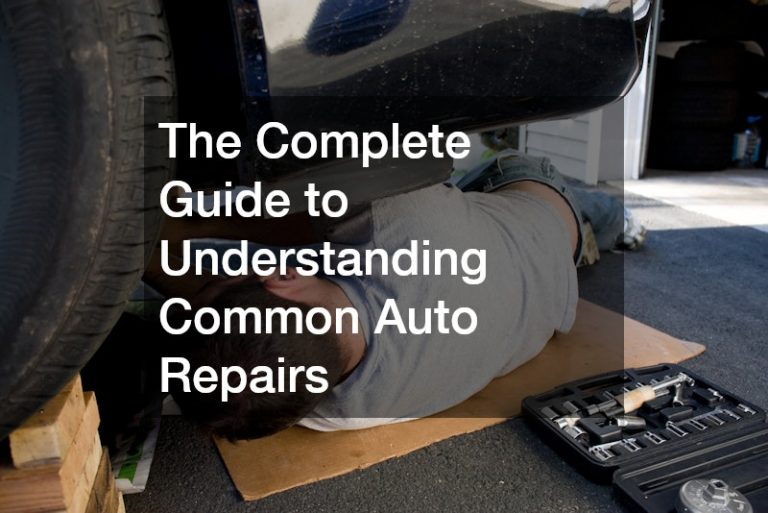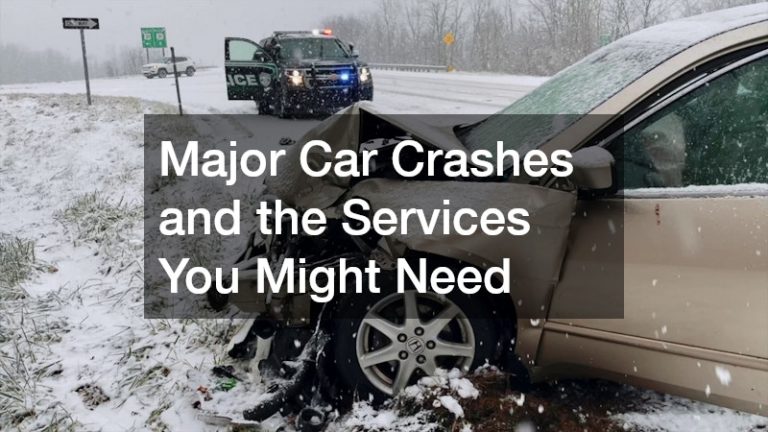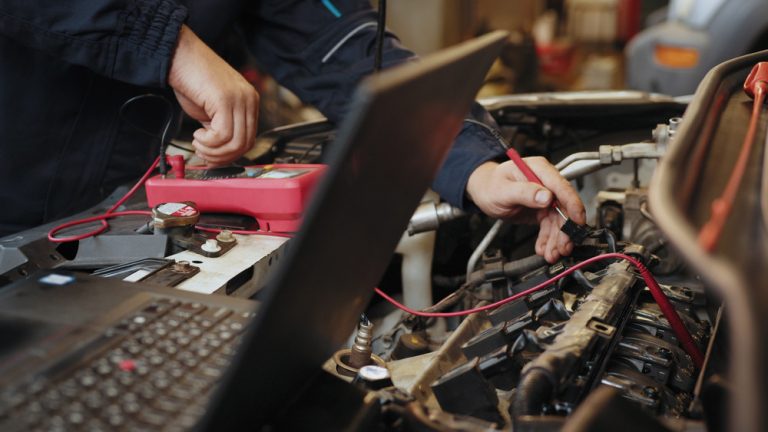

You just had a nasty car crash, and your vehicle is in pretty rough shape. You’re okay, but it’s time to get back to work, and your vehicle is still a mess. However, you don’t have a lot of cash or don’t want to spend much on its repairs. Is there anything that you can do to minimize these costs?
Thankfully, you can take several steps to ensure that you aren’t paying too much for your auto repairs after a severe accident. Each step should be attempted before attempting a lawsuit – only go after someone legally if you feel you have no other choice or if your case is quite strong.

Step One: See What Your Insurance Will Cover
After a serious car accident, it is essential to see what your insurance will consider covering before you reach out to personal injury attorneys. While you may be tempted to just jump into a lawsuit, you may not have a good argument for one or may need to cool off a little and get some repairs that help with your car needs.
In some cases, you can use your insurance to pay for these repairs before a lawsuit. But, often, you’ll need to contact a professional appraiser who can take a look at how much you spent, how much your car is worth and provide you with compensation for any differences between these two costs.
Then, you can use the money from your lawsuit to compensate your insurance company or yourself for the payments. After all, using your insurance will require you to meet a deductible (which can be as high as a few thousand dollars) and make it necessary for your rates to increase.
This situation is often frustrating, and you deserve to work with auto accident attorneys to get compensation for this type of payment situation. Before that, though, your insurance may help you out in many ways that are well worth exploring if you want to save money on your fixes.

Step Two: Consider Used or Aftermarket Parts
Many mechanics will tell you that the best way to cut back on your repair costs is to find a used or aftermarket parts dealer you can trust. These dealers will find inexpensive options that will work for your car repair steps and provide many of the same benefits as newer parts at a fraction of the cost.
Some steps, such as car dent repair, won’t require many parts behind a few tools. However, the right used parts can cost hundreds of dollars less than new components and maybe in great shape. The same is true of aftermarket parts – they may not be produced anymore but can be sold, as is, for low prices.
It might also be essential to contact a car locksmith if your vehicle’s door is fused shut or if you cannot get the door to work correctly. These professionals can check into the proper parts for repairing and replacing this issue and will do what they can to help ensure that you get what you need to be done.

Step Three: Handle Steps You Know You Can Do
If you still need to save money on your car repairs after buying used parts, it may be a good idea to investigate what repairs you can do yourself. Many car owners may find that they are surprisingly skilled at a handful of different upgrades that make their car cheaper to repair after a crash.
For instance, many car owners may find that auto fabric repair is relatively simple and easy enough to do themselves. You just may need to buy replacement material, carefully removed the damaged elements, and install new ones with minimum fuss. Doing so helps to provide long-lasting benefits.
Try to approach all of your repairs in this way to cut back on your costs and save yourself a lot of money. For instance, you may replace your wheels yourself if you fully understand the process and feel comfortable with a jack. And many car owners can likely replace mirrors and other simple steps to save cash.
Step Four: Work With Someone You Trust
Everybody knows a few people who know a thing or two about cars. These individuals can often provide high-quality repairs as good as a mechanic for much less. Just a few people who might help include:
- A friend who works as a mechanic
- A skilled amateur who’s learning their trade
- A family member with experience in the field
No matter who you choose, try to pick someone willing to work quickly and inexpensively. And make sure that you know they work well, as you don’t want to pay a lot of money to get your repairs repaired.
Step Five: Know When It’s Time to Junk It
There comes a time when even the best transmission service will not do much to help out your vehicle. Put simply, a crash may junk your car and make it not even worth repairing. Therefore, it is essential to know what to expect and when you should junk your car in this situation.
The junking process is something your insurance company will do for you, helping to streamline the process and make it smoother to execute. You may find yourself working directly with the car appraiser on this process, so it is essential to understand these different valuation steps before you begin:
- Estimate Your Car’s Value – Your insurance company will estimate how much your car was worth at the time of the accident. This factor is based on things like its Kelley Blue Book value and its possible devaluation over time. Of course, you won’t get back what you paid for the car, so don’t expect to get it.
- Gauge the Potential Cost of Repairs – While you can use the steps above to decrease many of the repair costs associated with your vehicle, your insurance company will come up with an estimate of how much it will cost to repair your vehicle with a standard mechanic and appropriate parts.
- Decide on Whether to Junk – If your car’s value is below the costs of repairs needed to get it back on the road, your insurance company will junk your car. Instead, they’ll pay to help haul it to the junkyard – you’ll get a small amount of money, usually no more than $200-500, for this scrap material.
- Find a New Vehicle – After your car has been junked, your insurance company will provide you with a replacement worth an equal amount or less than the junked car. Remember – you’re not getting what you paid out of the vehicle but the value at the time of the crash instead.
If you follow these guidelines, you should adequately junk your car and run into minimal complications. For instance, you’ll avoid having to pay too much money on repairs and can, instead, have your insurance replace your vehicle with an option of equal or lesser value, depending on your policy.
But what about situations in which you feel like you’ve been wronged or if you want more compensation to pay for your car’s repairs? In this situation, you may not want to junk your vehicle but consider a lawsuit instead. Doing so is something that must be approached with care and caution.
Step Six: Consider a Lawsuit
If your car repair costs are getting too high, or you simply don’t want to have to pay to repair a car you didn’t break, it might be time for a lawsuit. A reasonable accident attorney can help you understand your rights as a driver and give you a better understanding of what to expect from your case.
Is a lawsuit right for you? That depends on a few different factors that have to be carefully weighed. For example, you can’t just run into a car accident lawsuit without a bit of preparation and without feeling confident that you’ll have some chance of winning. Factors to consider in this situation include:
- The Accident Fault – Were you found to be liable for the accident when it occurred? If so, you probably don’t have much chance of winning a case. However, if other drivers were considered responsible, you should seriously consider a case to ensure that you get the compensation you want and deserve.
- The Severity of the Crash – Just how much damage was done to your car? And how much of that damage can be laid at the foot of the crash? Your vehicle will need to be inspected before a lawsuit to get an idea of just how much damage you can ask for when attempting a case like this after an accident.
- Other Factors – Was the driver of the car behaving in such a way to worsen the crash damage? For example, did they drive fast into you before the accident or fail to stop or slow at all when necessary at a stop sign? In addition, the behavior of the other driver can often consider how much you get in compensation.
- State Laws and Rules – Many states have strict rules and regulations on how much money people can earn in car accident lawsuits. These rules attempt to minimize unnecessary lawsuits and protect people from having to pay rewards that are unfairly calculated or too high for the crash situation.
But what about injuries that you may have experienced in the crash? You may also need personal injury attorneys to learn more about your rights. These lawsuits are similar to those for car damage repairs but have a different focus – they try to prove that someone else caused the accident that hurt you.
You’ll need a reasonable attorney for these cases because you can bet that your opponent is going to come at you hard and fast with their lawyer. They don’t want to pay for your repairs or your injuries and will do whatever they can to get out of it. Defenses they may try include:
- Shared Liability – This defense claims that you shared at least some of the blame for the accident. They’ll try to use testimony to prove that you were driving poorly or dangerously. A skilled accident lawyer can help fight against this claim by showing evidence that you were not to blame.
- Mechanical Failure – Some people may claim that their vehicle failed them unexpectedly and caused the accident. This defense requires an investigation of the car and proving that they weren’t liable for the damage that caused the failure. As a result, this approach rarely works.
- Perspective Attacks – Sometimes, you may find that desperate people attack your perspective on the scene or try to prove that you were not injured in the attack. For instance, they may claim that you had health issues before the crash that caused the injury and that you’re using the crash as an excuse.
When going through a lawsuit of this type, it can be very frustrating to get attacked in this way. You may find yourself waiting sometime before you can get any money, which means your car may be sitting for a long time. That’s why it’s essential to consider the steps mentioned above first.
Lawsuits should only be pursued if you have no other resources or believe that the individual who caused the accident deserves to pay for your repairs and vehicle upgrades. But, of course, that will depend on what the court thinks and how good your lawyer is at proving your case and your need for cash.
Thankfully, you should also work directly with a mechanic and your legal team to get the high-quality help needed to minimize financial struggles. You may have to work hard to cut your car’s repair costs, but the benefits are more than worth it. After all, getting to work after paying little for car repairs is a big deal and something that you deserve to experience after your injury.



